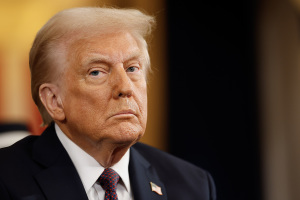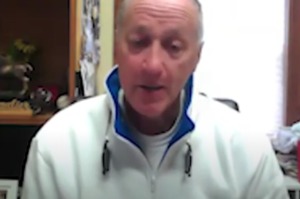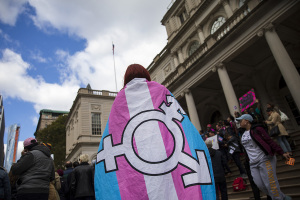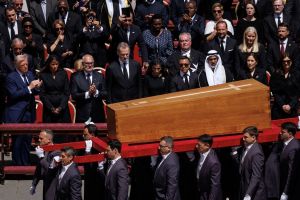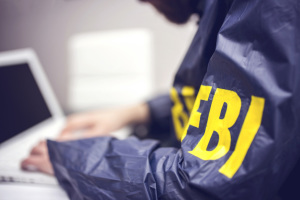Influential Christian leaders discuss bearing Gospel witness ahead of contentious election season
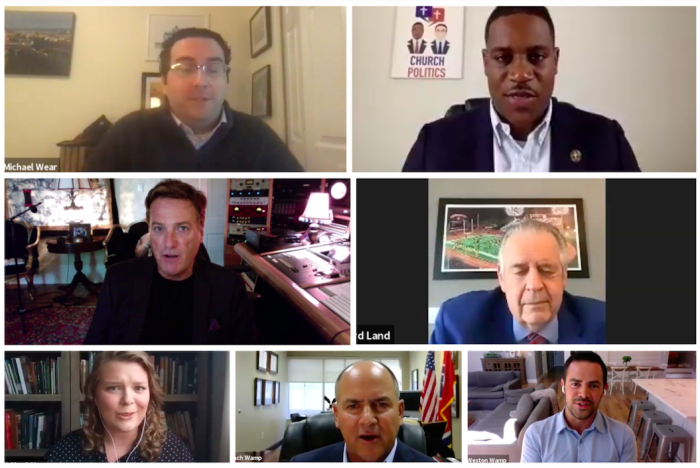
Ahead of a particularly contentious election season, a panel of influential Christian leaders, theologians, and authors gathered to discuss the importance of Christ-centered political engagement and bearing Gospel witness in a polarized society.
The "People of Faith: Engage 2020" webinar featured CCM artist Michael W. Smith, Southern Baptist leader Dr. Richard Land, President Obama’s evangelical outreach leader, Michael Wear, AND Campaign co-founder Justin Giboney, and young author and theologian Kaitlyn Schiess.
Hosted by Weston Wamp, senior political strategist at Issue One, a nonpartisan reform organization in Washington, and his father, former Tennessee Congressman Zach Wamp, the webinar focused on a wide range of issues pertaining to the political responsibility of the Body of Christ, both individually and collectively.
Opening the webinar, Zach Wamp cited Matthew 10:16, which says, “Behold, I send you out as sheep in the midst of wolves; so be wise as serpents and innocent as doves,” to encourage Christians to engage with the political process.
“I think when Jesus comes back, He doesn't want to see us hiding and waiting,” he said. “He wants to see us engaged.”
Giboney, an attorney and political strategist in Atlanta, said there are two primary reasons Christians should participate in the civic space: To defend human dignity and promote human flourishing.
“The best way that we can do that, I think, is going against this false dichotomy ... which kind of separates justice and order,” Giboney said. “For so long it was thought that if you cared about justice in a social context or racial context, then you would go to the left. If you cared about order and morality, then you will go to the right. But when we look at the Gospel, when you look at the walk of Jesus Christ, there was no separation ... you actually see them coming together.”
“Christians need to be in that space because I don't think anybody can interpret it the same way as we do,” he stressed. “I don't think any of these ideologies that sometimes Christians follow too closely have the moral imagination to provide the answers that we need at a time like this.”
The webinar also addressed the cynical attitude of many Americans toward politics. A recent study found that the United States has one of the lowest rates of youth voter turnout in the world.
Wear, who co-authored a book with Giboney titled Compassion (&) Conviction: The AND Campaign’s Guide to Faithful Civic Engagement, acknowledged that many young Christians don’t want to engage with politics in D.C. because they’re too “dirty” or “messy.”
“You don't have a choice about whether you have a stake in our politics just by virtue of being a citizen, you have a responsibility,” Wear contended. “As a Christian, and as a citizen, the only real choice you have to make is how to steward that responsibility.”
Christians shouldn’t go to politics for “ultimate things” like self-aggrandizement, identity, or a primary sense of community, Wear said, adding: “Christians find their security and their identity elsewhere. It's actually the fact that Christians find those ultimate things elsewhere that they're actually freed up, then, to enter into politics for the love of their neighbors, and for the good of the communities in which they live in.”
Schiess pointed out that millennials and Generation Z, in particular, are “very attuned to what seems fake or inauthentic” and disillusioned by the hypocrisy that often seems born out of maintaining or accruing power.
“They’re sick of this one presidential vote every four years being the sum total of their identity, in their community, and their political life,” she said.
Schiess encouraged young people to engage with local politics, which she argued are “more manageable.”
“Your political life is more varied than this one vote,” she emphasized. “This one vote is important, but there are so many other opportunities that might be less complicated by some of our own history and pitting different kinds of human dignity against each other.”
Attendees shared their thoughts on bearing Gospel witness in a volatile election year.
Smith, a chart-topping singer/songwriter, said he doesn’t “flippantly” take a public stance on political issues because he wants to “be able to speak to both sides of the aisle.” Still, the worship leader, who has publicly supported both Republican Gov. Bill Lee and the Bush family, said he gladly backs those whose values align with his.
“I don't want to be pigeonholed as some sort of right-wing guy,” he said. “I want to sort of be down the middle. What drives me is my faith and policy: What are the policies that are being set forth? How are they going to affect my kids and my grandkids?”
Giboney said that while those in “protected classes” rarely see the need for political engagement, Christians should “always be concerned about others.”
“One of the biggest problems that we have with our discourses is there's just a lack of humility and a lack of intellectual honesty,” he said. “Everybody wants to hold on to their narrative and everybody wants their narrative to be perfect. There's no nuance, but it's clearly dishonest.”
Christians, he stressed, “cannot participate in that.”
“I don't know anybody who went up to Jesus with a perfect narrative and walked away with that narrative intact,” he said. Giboney urged Christians to enter into political conversations with a spirit of self-examination instead of self-defense.
Smith agreed that sometimes, “we just need to sit down and have a conversation,” adding, “I would just challenge all of us, but especially this next generation, to challenge your thoughts and find out what's really true.”
Participants also addressed the responsibility pastors have when it comes to political engagement and fostering unity within their congregations.
Giboney revealed that while writing his latest book, he encountered a number of pastors who “literally had people fighting about the 2016 election in the church.”
“I try to tell people is that this election is important ... but it's not worth losing a brother and sister over,” he said. “I tell pastors, ‘try to bring some perspective to the conversation.’ We don't need to get partisan; there's enough partisanship out there. Bring some perspective.”
Land, who has preached over 6,000 sermons since entering the ministry several decades ago, contended that a pastor should “never bring politics into the pulpit.”
“We can bring public policy issues into the pulpit,” he clarified. “But you always deal with it on a biblical basis. The Bible has something to say about the sanctity of human life. The Bible has something to say about racial prejudice ... What does the Word of God say about this and what are our responsibilities.?”
“I think it's a sin not to vote,” the president of Southern Evangelical Seminary continued. “We need to vote our values, our beliefs, and our convictions, We need to be informed voters. We, as pastors, [need to] make sure that people are informed about the issues, that they understand their responsibility to vote, and that when they vote, to vote their values, their beliefs, and their convictions.”
Land admitted that he, like many Christians, voted for Donald Trump in 2016 because he was the “lesser of the two evils.”
“If we don't like the choices, we need to challenge our people to get involved and give us better choices,” he said, adding that public policy is a “calling.”
Earlier in the session, Land said that when it comes to engaging with others, Christians would do well to follow the example of Martin Luther King Jr. He pointed out that the Baptist pastor’s social and political activism stemmed from “an overtly Christian theology point of view.”
“Dr. King is a great example to us, and it's one reason why the civil rights revolution is one of the most successful social revolutions that we've had in the United States,” Land said. “He changed people's hearts, not just their behaviors. We need to be about our Father's business ... It’s only the light of the Gospel that can change hearts.”
Closing the webinar, Wear reminded attendees that Jesus is “not confused about our political system.”
“He gets, He knows. As Christians, in politics and in all things our job is not to determine the outcome. Our job is to be faithful with the responsibility we have. I just want to reframe this idea that I can't choose between these two candidates,” he contended. “You're not complicit with everything the person you vote for did. If so, then none of us would ever be able to vote, ever.”
The webinar, held Aug. 18, was attended by 2,000 individuals across various platforms.
In a statement to The Christian Post, Weston Wamp said that through the event, Issue One hopes to “start a conversation across generations of believers about a better type of civic engagement that is focused on shared values and principles rather than partisanship.”
“As Justin Giboney and Michael Wear write in their new book, partisan politics often offers us false choices that Christians should reject,” he said. “For example, I'm a conservative who believes in personal responsibility — but I'm also passionate about giving a voice to our neediest brothers and sisters.”
According to Wamp, who also hosts the popular reform podcast "Swamp Stories,” there are “many nonpartisan solutions that would promote integrity, ethics and transparency in our government that should be championed by Christians, regardless of political party.”
“At Issue One, we work across party lines every day to make our political system work better in pursuit of a ‘more perfect union.’ That work often feels like putting the great requirement ‘to act justly and to love mercy’ into motion.”
Watch the entire "People of Faith: Engage 2020" webinar below.
















